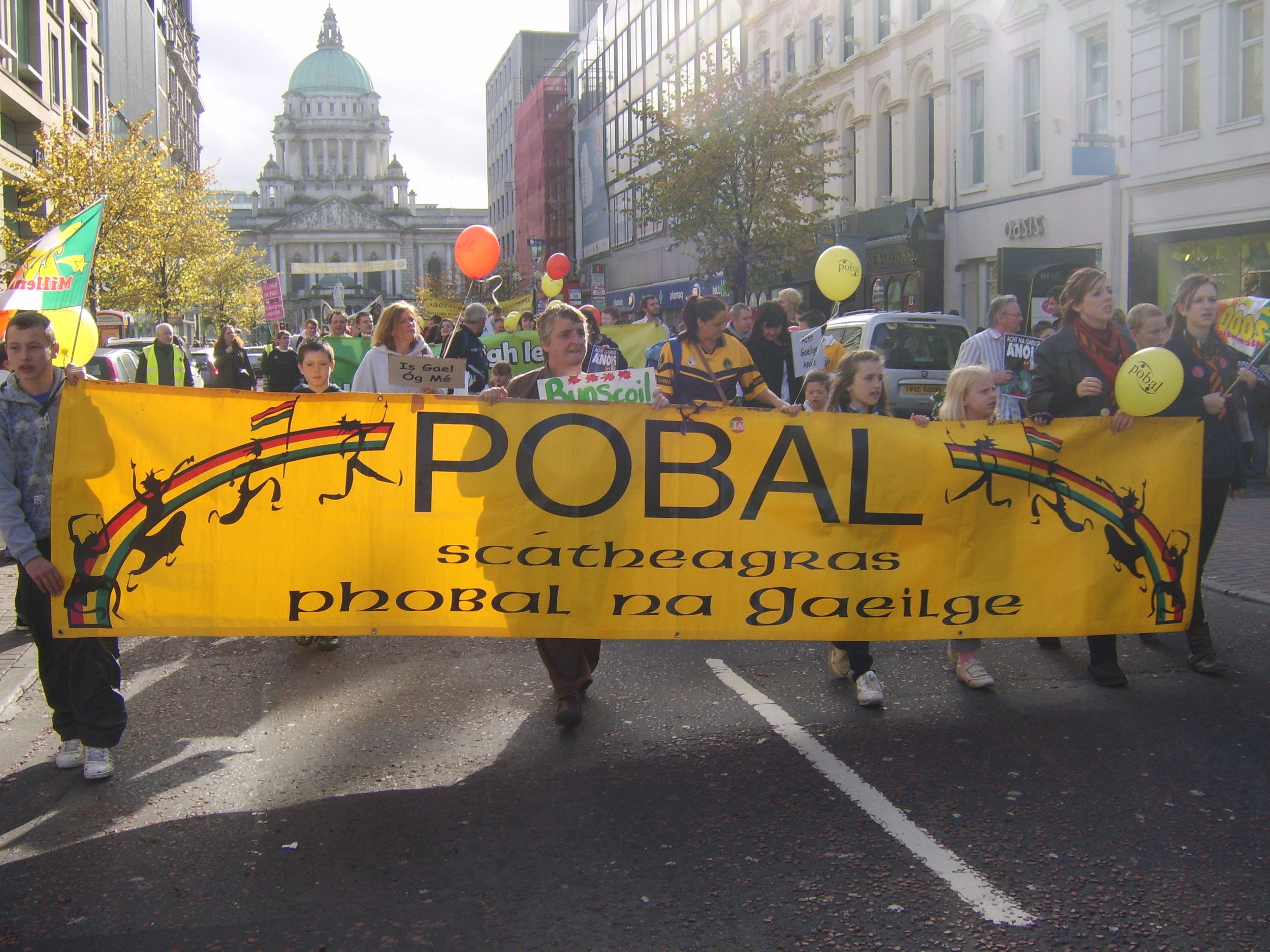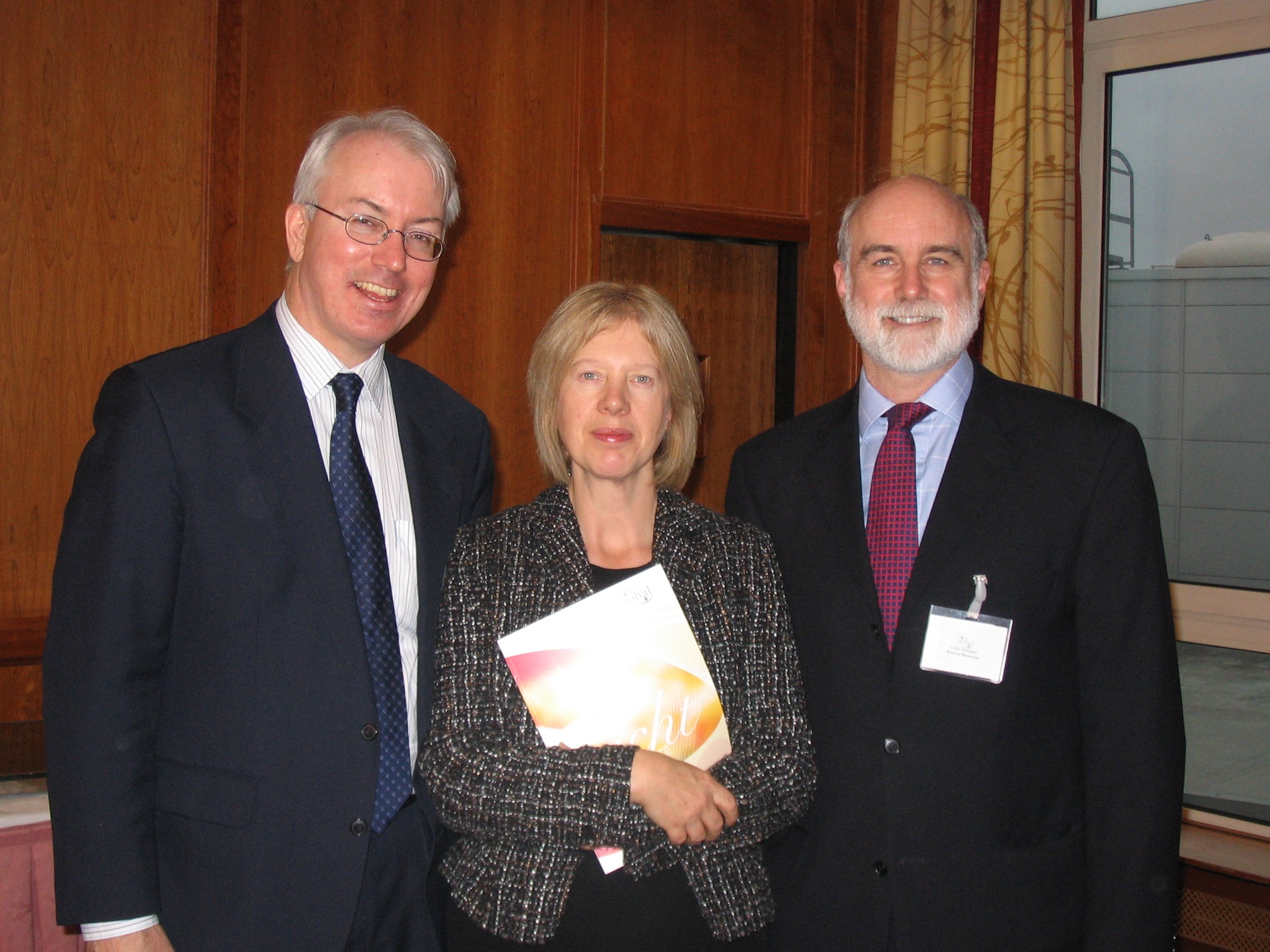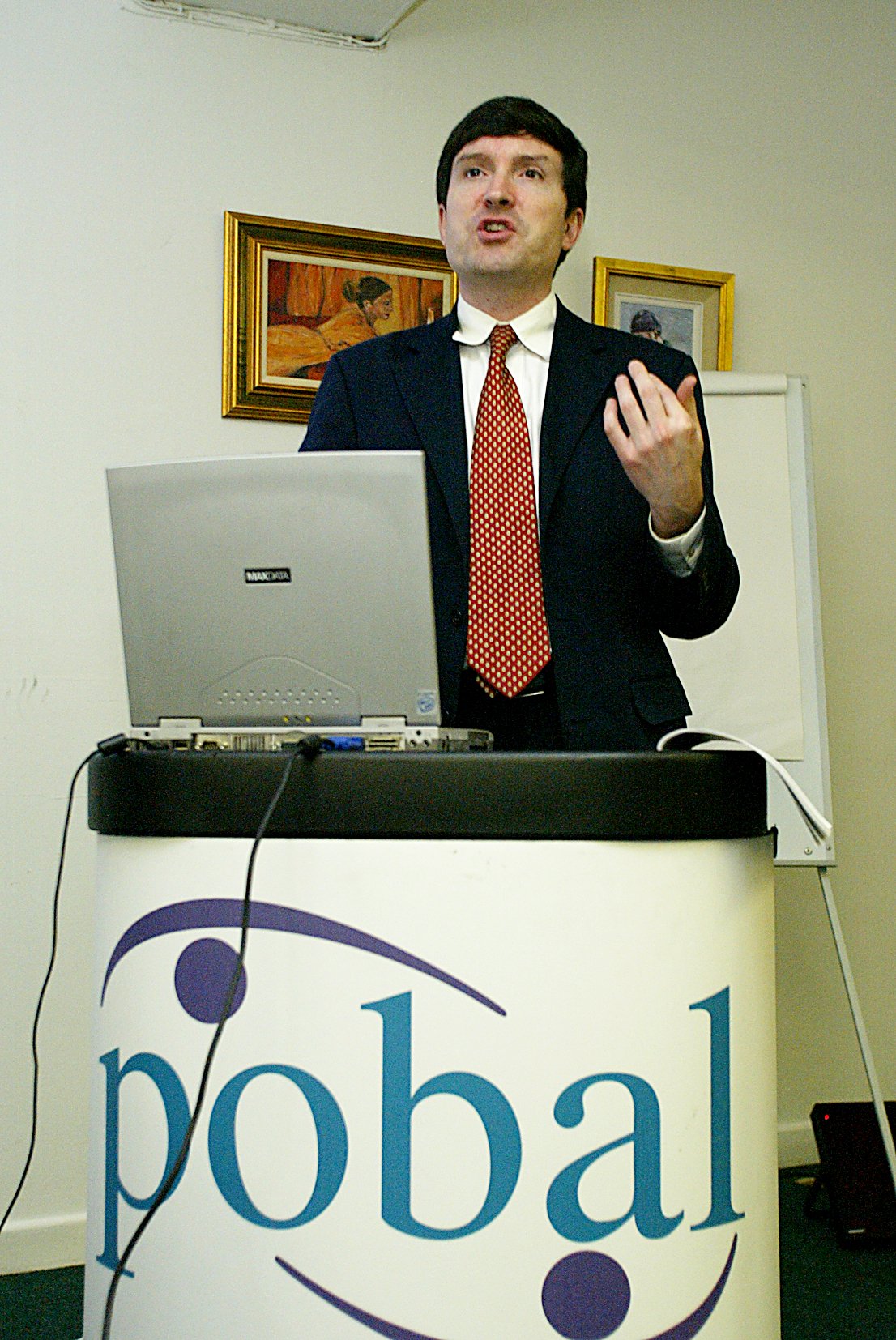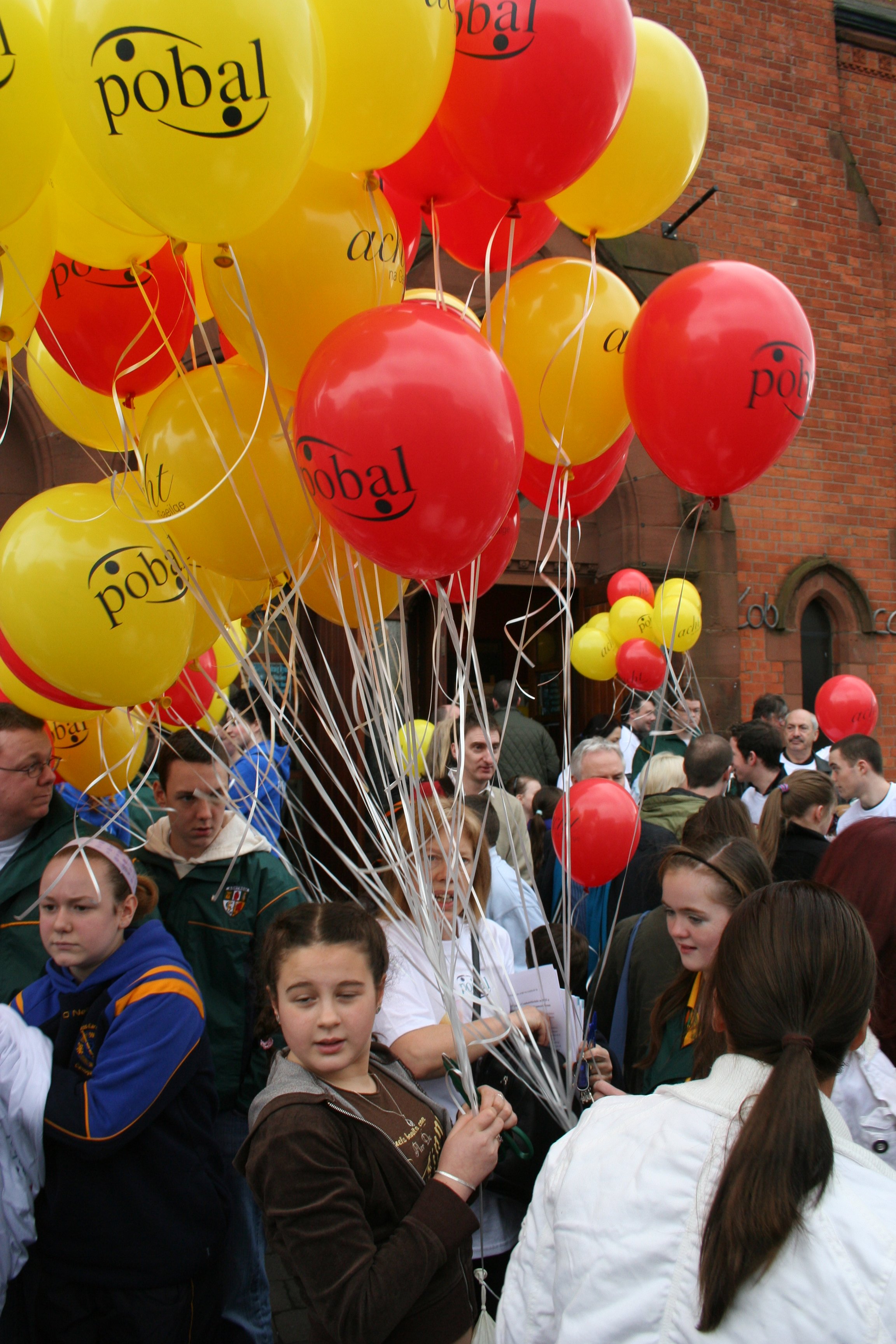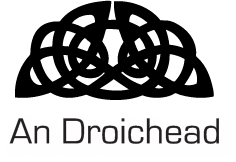
Acht na Gaeilge
Irish Language Act
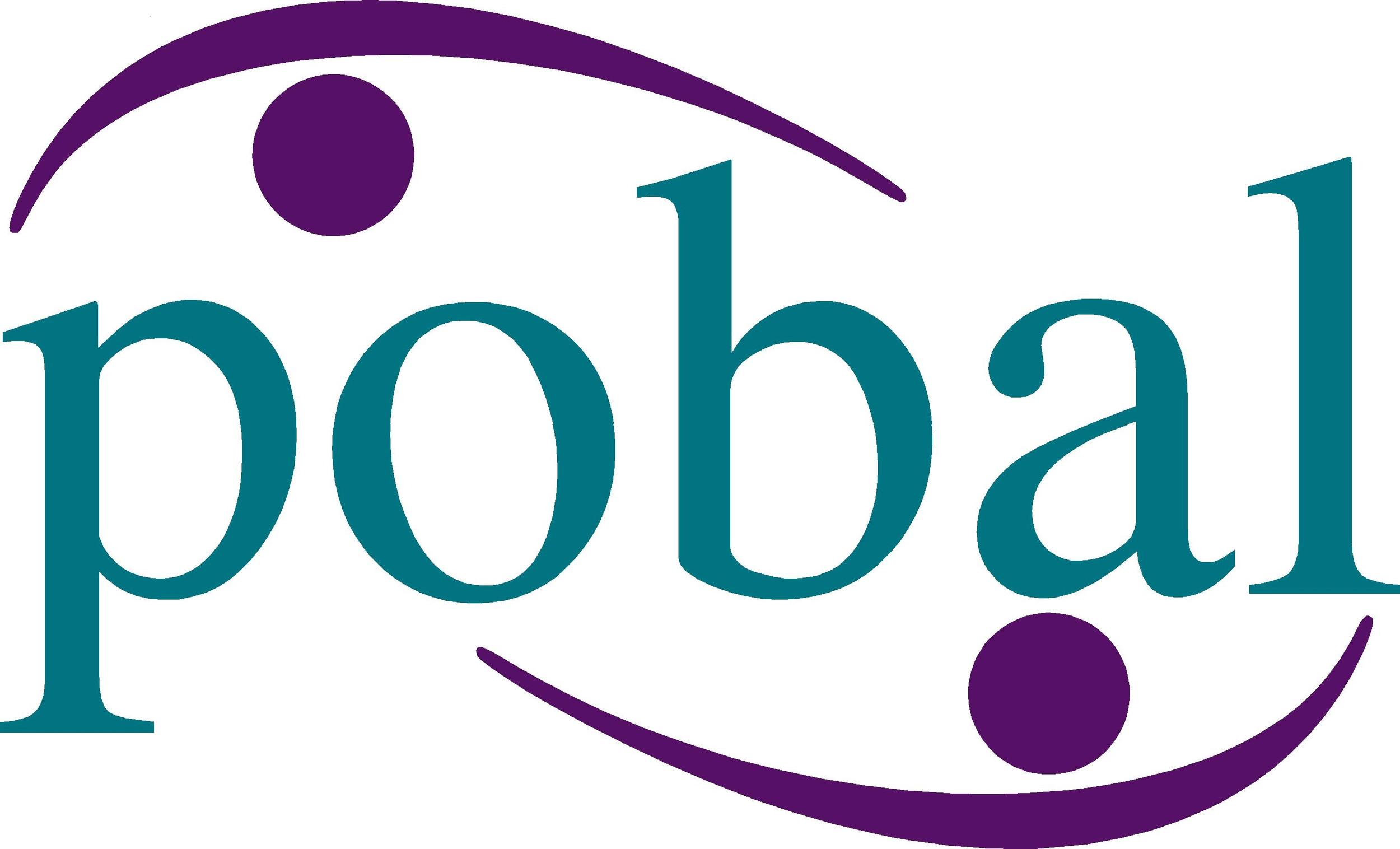
Acht na Gaeilge / Irish Language Act
Le blianta fada, tá sé soiléir dár bpobal go bhfuil géarghá le reachtaíocht chuí áitiúil don Ghaeilge i dtuaisceart na hÉireann. Ó chéadbhunaíodh POBAL, thóg muid ceist nareachtaíochta go leanúnach ag gach leibhéal rialtais agus saoránachta. Thuig muid go maithgur ceist chasta í ceist na reachtaíochta. Ba mhian le POBAL tógáil ar an díospóireacht agusfócas a thabhairt di sa dóigh is go dtiocfadh le pobal na Gaeilge bogadh chun tosaigh arbhonn moltaí soiléire, láidre, aontaithe maidir lena bhfuil a dhíth orainn. Leis an chuspóir seoa bhaint amach, dhírigh foireann bheag POBAL ar phróiseas comhairliúcháin a sheoladhchun tosaigh ón Fhómhar 2004. Le tacaíocht ó phobal na Gaeilge fud fad an tuaiscirt, reáchtáil muid comhdhálacha idirnáisiúnta, cruinnithe áitiúla agus díospóireachtaí poiblí, chomh maith leis na dréachtmholtaí s’againne a dhréachtú is a scaipeadh. As anghníomhaíocht seo a tháinig foilsiú Acht na Gaeilge TÉ i mí Feabhra 2006, sraith moltaí idtreo Acht Gaeilge don Tuaisceart. I rith an ama, is le comhairle agus tacaíocht luachmharroinnt saineolaithe ardoirirce sa dlí idirnáisiúnta agus i gcearta daonna a rinne muid ár gcuidoibre. Bhí muid buíoch go háirithe don Ollamh Robert Dunbar agus don Ollamh Wilson McLeod (Oilthigh Dhùn Éideann) a thug go fial flaithiúil a gcuid ama agus saineolais le dea-mhéin agus le haoibh mhaith gan teip agus don Ollamh Colin H. Williams (Ollscoil Chaerdydd) agus an Dr Fernand de Varennes (Ollscoil Murdoch, An Astráil) a chuir thar nabearta le cáipéis Feabhra 2006.
Ba ar thorthaí na gcomhairliúchán le pobal na Gaeilge agus leo siúd uilig a ghlac páirt iontu, agus ar an chleachtas idirnáisiúnta is fearr ar chearta teanga ar a raibh leagan 2006 an doiciméid ‘Acht na Gaeilge do TÉ’ bunaithe. Ba mhór amach tionchar na cáipéise seo. B'ionstraim chumhachtach, chomhaontaithe abhcóideachta fosta í a d'áitigh ar roinntpolaiteoirí, agus leoga roinnt rialtas, gur chóir go mbeadh Acht Gaeilge ina chuid den dispeansáid úr a bhí faoi chaibidil ag na cainteanna i gCill Rìmhinn. In Aguisín B Chomhaontú Chill Rìmhinn (Deireadh Fómhair 2006), thug rialtas na Breataine an ghealltanas a leanas: “Tabharfaidh an Rialtas seo isteach Acht Teanga Gaeilge a léireoidheispéireas na Breataine Bige agus na hÉireann agus oibreoidh sé i gcomhar leis an Fheidhmeannas atá le teacht le forbairt na Gaeilge a mhéadú agus a chosaint.”
Faraor, níor tugadh isteach reachtaíocht don teanga abhus, agus le himeacht ama, agus ag cuimhneamh ar na forbairtí i bhí déanta ag pobal na Gaeilge féin, d'iarr POBAL ar dhaoineaonair agus ar eagrais éagsúla atá bainte le forbairt na Gaeilge na moltaí a athbhreithniú. Le tacaíocht an Aire Cultúir, Ealaíon agus Fóillíochta, Carál Ní Chuilín agus Basil McCrea CTR, thionóil muid imeacht ar an Áiléar Fhada, Stormont, ar 16 Samhain 2011. Glacadh arísleis na moltaí ag an imeacht, agus moladh go nuashonrófaí earnálacha na meán agus an oideachais le dul chun cinn na teicneolaíochta agus fás an phobail a thabhairt san áireamh. D'iarr muid mar sin ar roinnt ball den mheitheal a bhí ag baint le hullmhú na buncháipéise, Acht na Gaeilge TÉ, trácht uirthi agus í a nuashonrú. De bharr an phróisis seo, cuireadh nadréachtmholtaí féin amach ar fud an phobail agus chuig réimse comhlachtaí, scoileanna, ranna stáit srl. Chomh maith, reáchtáil POBAL sraith de chruinnithe comhairliúcháin igceantair éagsúla. Tar éis tarraingt ar thorthaí an phróisis sin, d'fhoilsigh muid an tsraith úrmoltaí nuashonraithe, Acht na Gaeilge TÉ Eisiúint II, moltaí gur chóir a bheith mar bhunúsaon reachtaíochta Gaeilge sa lá atá inniu ann.
The need for appropriate domestic legislation for the Irish language in the north is one that has been clear to our community for many years. Since our inception, it was a question that we consistently raised at all levels of government and in the broader society. We were well aware that legislation is a complex area, and POBAL sought to build and focus the debate so that the Irish speaking community could move forward with clear, strong and agreed proposals on what is needed. To this end, POBAL’s small team of workers drove forward a consultative process that began in the autumn of 2004. Working with support from Irish speakers throughout the north, we organised international conferences, local meetings and public discussions and the production and distribution of our draft legislative proposals.
This activity led to the publication by POBAL in February 2006 of The Irish Language Act NI, a set of proposals for an Irish Language Act for Northern Ireland. Our work has been carried out at all times with the invaluable advice and support of a number of highly distinguished experts in international law and human rights. We are particularly grateful to Prof. Robert Dunbar and to Prof. Wilson McLeod (University of Edinburgh) who have given their time and expertise with great generosity, good will and unfailing good humour, and to Prof. Colin H. Williams (University of Cardiff) and Dr Fernand de Varennes (Murdoch University, Australia) who contributed immeasurably to the February 2006 document.
It was on the results of our consultation, and best international practice on language rights that the February 2006 document, The Irish Language Act TÉ was based. The document had a huge impact, facilitating and illuminating an in-depth, complex discussion within the Irish speaking community and in society more generally about the nature of language rights and the needs of Irish speakers. It was also a powerful, agreed advocacy instrument which persuaded some politicians, and indeed governments, that the Irish Language Act should be part of the new dispensation under discussion at talks in St Andrews. In Appendix B of the St Andrews’ Agreement (October 2006), the British government makes the following commitment: “The Government will introduce an Irish Language Act reflecting on the experience of Wales and Ireland and work with the incoming Executive to enhance and protect the development of the Irish Language.”
Sadly, no legislation was introduced to protect the Irish language here, and given the developments that the Irish language community has itself brought about in the meantime, POBAL asked a variety of individuals and organisations involved in Irish language development to review the proposals. With support from the then Minister for Culture, Arts and Leisure, Carál Ní Chuilín and MLA Basil McCrea, we held an event at the Long Gallery, Stormont, on 16 November 2011. The proposals were endorsed once more at the event, with the suggestion that the media and education sections be updated to take account of technological advances and the growth of the community. We therefore asked several members of the team which was involved in the preparation of the original document, The Irish Language Act NI to comment and update it, based on the discussion at the November event. As a result of that process, the draft proposals themselves were circulated throughout the community and to a variety of bodies, including schools, government departments and other bodies. In addition, POBAL organised a series of public consultation meetings in various areas. Having drawn on the findings of this process, we then published the updated set of proposals, The Irish Language Act NI Issue II, which should be the basis for any future Irish language legislation.
